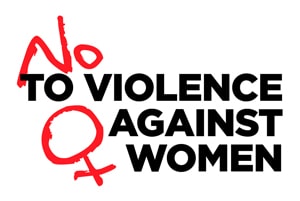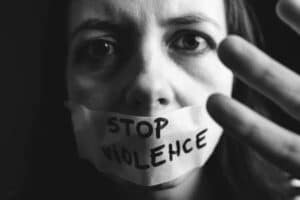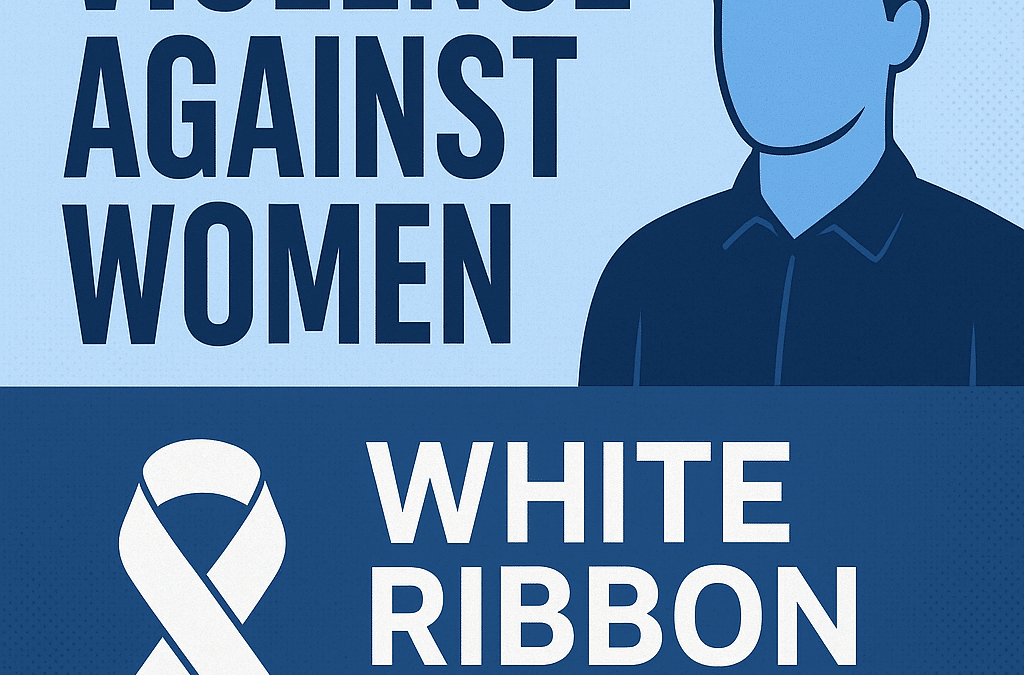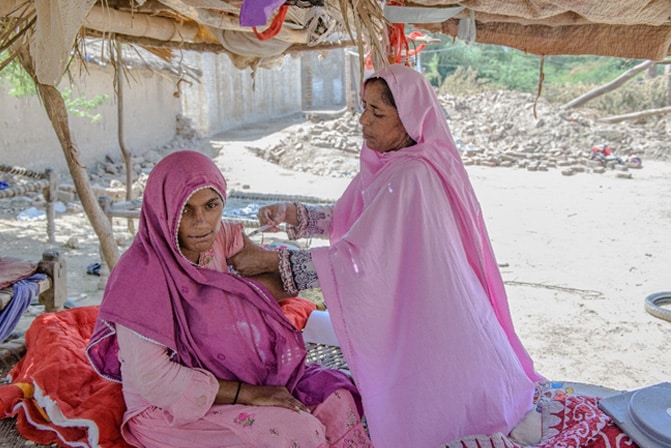
by admin | Jun 4, 2025 | Uncategorized
The shocking murder of 17-year-old TikTok influencer Sana Yousaf in Islamabad on June 2, 2025, has left the nation reeling. A young girl full of dreams, creativity, and a growing platform where she spoke boldly on women’s issues, Sana was fatally shot in her home—on her birthday—by a cousin who could not accept her rejection.
This is not just another tragic story. This is a deeply disturbing reflection of the patriarchal violence that continues to claim the lives of women and girls across Pakistan. Sana’s death is being mourned by millions, but mourning is not enough. We must demand accountability, education, and change.
The Pattern of Possession Disguised as Love
Preliminary reports indicate that Sana’s cousin, Umar Hayat, murdered her after repeated romantic advances were rejected. What should have been a simple “no” became a death sentence. This is not love—it is control, entitlement, and a dangerous cultural tolerance for violence against women who assert autonomy over their lives and bodies.
“She repeatedly rejected him, but he could not accept it. So he killed her.”
— The Express Tribune, June 3, 2025
Honor and Ego: Misused Justifications for Violence
While Sana’s family has called for justice, some narratives in media and social circles continue to frame such cases in terms of “honor” or “family matters.” Let us be clear: there is no honor in murder. There is no justification for taking a life because of wounded male ego or rejected affection.
“Another TikTok star killed as Pakistan struggles with ‘honour’-based violence.”
— The Times of India, June 3, 2025
Social Media Doesn’t Protect—It Can Expose
Sana Yousaf had built a following by expressing herself, sharing positive messages, and entertaining thousands. Yet, like many women in public digital spaces, she became a target. As we celebrate young women stepping into leadership and visibility, we must also ensure their safety, online and offline.
“TikTok star Sana Yousaf dies at 17 after being fatally shot.”
— People Magazine, June 3, 2025
White Ribbon Pakistan Stands with Sana
White Ribbon Pakistan mourns the loss of Sana Yousaf and stands in solidarity with her family and the countless women across the country who live under the threat of gender-based violence. We renew our commitment to:
-
Advocate for stronger legal protections against gender-based violence.
-
Educate communities to challenge toxic masculinity and gender norms.
-
Empower men to become allies in the fight for women’s safety and equality.
-
Demand justice for victims and accountability for perpetrators—without excuses.

by admin | May 23, 2025 | Physical Violence
Despite the progress humanity has made in science, technology, and education, one of the darkest and most enduring problems continues to persist across cultures and borders — physical violence against women.
Every day, in homes, streets, and workplaces, women face violence not because of anything they’ve done — but simply because they are women. This is not just a women’s issue; it is a human rights crisis that demands our collective attention and action.
What Is Physical Violence Against Women?
Physical violence includes any act that causes bodily harm or physical pain. It ranges from slapping, hitting, kicking, and choking, to the use of weapons. It also includes more subtle forms of abuse like restraining movement, forcefully grabbing, or pushing — often minimized by perpetrators and society alike.
But make no mistake: violence is violence, no matter the scale.
The Alarming Reality
-
According to the World Health Organization, 1 in 3 women globally experience physical or sexual violence in their lifetime.
-
In many societies, women face violence from someone they know — often from an intimate partner or family member.
-
A large number of cases go unreported, as women fear stigma, retaliation, or being blamed.
Behind every statistic is a woman whose life is impacted — mentally, emotionally, and physically.
The Cost of Silence
When physical violence is tolerated, excused, or ignored, we don’t just fail individual women — we fail entire communities. The effects are far-reaching:
-
Mental Health Issues: Anxiety, depression, PTSD, and suicidal thoughts are common outcomes.
-
Broken Families: Children growing up in violent homes are deeply affected, often perpetuating a cycle of abuse.
-
Economic Impact: Survivors may lose jobs or drop out of education due to physical injuries or trauma.
The Cultural and Structural Enablers
Too often, violence is fueled by toxic cultural beliefs:
These mindsets, combined with weak legal protections, poor law enforcement, and lack of safe reporting channels, make it difficult for women to seek justice.
Our Role in Ending Physical Violence
We all have a role to play. Ending violence against women isn’t just about punishing perpetrators — it’s about changing mindsets, institutions, and everyday behaviors.
What Can You Do?
Speak Up: Challenge jokes, comments, or traditions that normalize violence.
Educate Others: Raise awareness in your community, school, or workplace.
Support Survivors: Listen, believe, and stand by women who come forward.
Advocate for Laws: Push for stronger legislation and better implementation to protect victims and punish abusers.
Raise Boys to Respect Women: Teach empathy, equality, and responsibility from a young age.
The Hope Ahead
The journey is long, but not hopeless. From grassroots movements to international campaigns, the world is waking up. Women are raising their voices. Men are becoming allies. And communities are starting to say: enough is enough.
But awareness is only the beginning. What we need is action — from individuals, institutions, and governments.

by admin | May 12, 2025 | Uncategorized
Violence against women is not just a private tragedy—it is a public emergency that threatens the very fabric of our society. It is a silent epidemic, deeply rooted in power imbalances, cultural silences, and systemic neglect. In such a world, organizations like White Ribbon Pakistan are not just important—they are essential.
As someone who has worked alongside White Ribbon in campaigns, awareness programs, and digital outreach, I’ve come to understand the transformational power of advocacy, education, and community engagement. White Ribbon Pakistan is more than a campaign—it is a movement to end gender-based violence by challenging harmful norms and reshaping societal values.
The Mission: Ending Violence through Education and Engagement
White Ribbon Pakistan is part of the global White Ribbon movement—the largest in the world working to end violence against women by engaging men and boys. What makes this initiative powerful is its proactive, preventative approach.
Unlike reactive efforts that only respond after harm is done, White Ribbon focuses on root causes:
Through school programs, corporate engagement, and social media activism, White Ribbon creates safe spaces for dialogue, learning, and action.
🕊️ “We don’t need more silence. We need brave voices that say: this must stop.”
Digital Campaigns for Change
In our tech-driven world, awareness must evolve. As part of our digital activism efforts, I’ve contributed to campaigns that educate, engage, and empower using digital tools:
-
Designing interactive awareness content
-
Using storytelling and testimonials to amplify survivor voices
-
Collaborating with ethical brands like ECS to promote women’s empowerment through fashion and visibility
-
Integrating White Ribbon messaging in corporate communication and youth platforms
These campaigns didn’t just trend—they triggered conversations, especially among young men, about respect, consent, and responsibility.
Partnering with Institutions: Building a Culture of Respect
One key strategy is working with institutions—schools, colleges, media houses, and companies—to spread the White Ribbon message. With training sessions, seminars, and tailored communication toolkits, White Ribbon helps shape environments where:
-
Women feel safe and respected
-
Men are allies, not bystanders
-
Bystander intervention is encouraged
-
Reporting mechanisms are trusted
This systemic change cannot happen overnight—but every conversation moves us forward.
📢 “Change starts when silence ends. And silence ends with awareness.”
Tech-Enabled Advocacy: Beyond Social Media
In one of my projects, I explored the idea of building digital platforms—like mobile apps and interactive websites—to help women:
These tools could become lifelines for those trapped in cycles of abuse. When tech meets compassion, real empowerment happens.
The Numbers Demand Urgency
According to UN Women, 1 in 3 women globally experience physical or sexual violence in their lifetime. In Pakistan, cases often go unreported due to fear, stigma, or lack of access to justice.
White Ribbon Pakistan responds with action, not despair. From marking International Day for the Elimination of Violence Against Women (25th November) to initiating 16 Days of Activism, the organization remains committed to changing not just laws, but hearts and minds.
Moving Forward: What You Can Do
Whether you are a student, teacher, parent, or simply someone who cares—you are part of the solution.
-
Speak up against sexist jokes and comments.
-
Support survivors by believing and listening to them.
-
Volunteer with campaigns like White Ribbon Pakistan.
-
Educate yourself and others about the subtle forms of emotional, verbal, and psychological abuse.
-
Raise your sons to value empathy, respect, and equality.

by admin | May 5, 2025 | Uncategorized
Violence against women is not a women’s issue — it’s a human issue, and more importantly, it’s a men’s issue too. In societies around the world, including Pakistan, women face discrimination, abuse, and violence in various forms. For decades, these injustices were met with silence. But that silence is being broken — and men are beginning to take a stand.
One of the most powerful movements in Pakistan addressing this issue is the White Ribbon Campaign — a movement where men speak out against violence towards women and commit to becoming part of the solution, not the problem.
Why Should Men Be Involved?
Men are often the perpetrators of gender-based violence, but they are also key to ending it. Men have power — in homes, workplaces, religious spaces, and communities. If they use that power to protect, uplift, and support women rather than control or silence them, change becomes possible and sustainable.
Men’s involvement is not about guilt — it’s about responsibility. It’s about standing against a culture that normalizes harassment, emotional abuse, or silence in the face of domestic violence.
The White Ribbon Movement in Pakistan
The White Ribbon Pakistan campaign is a national movement that invites men and boys to wear a white ribbon as a sign of their commitment to ending violence against women. It promotes:
-
Awareness through education
-
Engagement through community events and workshops
-
Advocacy for policy change
-
Support for women’s rights organizations
White Ribbon Pakistan isn’t just about symbolism — it’s about action. It challenges toxic masculinity, promotes respectful behavior, and urges men to intervene when they witness violence or injustice.
Key Messages of the Campaign
-
Violence is never a solution.
-
Respect begins at home.
-
Men must speak up — silence is complicity.
-
Educating boys is as important as protecting girls.
-
Change starts with everyday actions.
How Men Can Help End Violence
Every man can play a part — here’s how:
1. Challenge Harmful Norms
Speak out against sexist jokes, objectification of women, and outdated beliefs that feed a culture of violence.
2. Raise Boys Differently
Teach young boys empathy, respect, and the value of equality from an early age. Replace the idea of “boys don’t cry” with healthy emotional intelligence.
3. Support Survivors
Listen, believe, and support women who speak out. Stand by them without judgment or victim-blaming.
4. Be Accountable
Reflect on personal behavior. Apologize and change when mistakes are made. Leadership begins with honesty.
5. Join the Movement
Wear the white ribbon. Join campaigns. Share the message on social media. Be vocal in your community, workplace, or school.
A Better Society for All
When men stand against violence, women are safer, children are healthier, and society thrives. This is not just about protecting women — it’s about building a fair, just, and humane society for everyone.
In Pakistan, the White Ribbon Movement has shown that change is possible — and that men are not the enemy, but the allies women need.
Let us not wait for tragedy to inspire change. Let us act today — because ending violence against women starts with men.

by admin | Apr 30, 2025 | Uncategorized
Women’s health in Pakistan, especially in its remote and underdeveloped regions, faces a myriad of challenges. These challenges stem from socio-economic factors, cultural norms, and the lack of infrastructure and awareness. For many women living in the backward areas of the country, access to quality healthcare is limited, leading to significant health disparities. In this blog, we will explore the critical issues affecting women’s health in these regions, the existing barriers, and potential solutions to improve the situation.
1. Limited Access to Healthcare Services
One of the most significant challenges women in backward areas face is the lack of access to healthcare facilities. In many rural regions of Pakistan, health clinics and hospitals are few and far between. Traveling to the nearest healthcare center can be costly and time-consuming, particularly in areas where roads are poor or non-existent.
Moreover, the few available health facilities are often underfunded, under-equipped, and short-staffed. These hospitals and clinics may lack essential medical supplies, diagnostic equipment, or specialized medical professionals, such as gynecologists and obstetricians, which is crucial for women’s health, especially during pregnancy and childbirth.
2. Cultural and Societal Barriers
Cultural norms in many backward areas of Pakistan heavily influence women’s healthcare decisions. There is often a stigma surrounding women’s health issues, particularly reproductive health. Topics like menstruation, contraception, and maternal health are frequently considered taboo and are not openly discussed within families or communities. This silence prevents many women from seeking the necessary medical attention when needed.
Furthermore, gender inequality in some areas also means that women do not have the autonomy to make decisions regarding their own health. Male members of the family often have the final say on healthcare matters, and this can result in women’s health needs being neglected.
3. Maternal Health and High Mortality Rates
Pakistan has one of the highest maternal mortality rates in South Asia. In rural areas, the situation is even more dire due to limited access to prenatal care, skilled birth attendants, and postnatal care. Many women give birth at home, often with the assistance of untrained midwives or no help at all. This increases the risk of complications during childbirth, such as hemorrhage, infection, and eclampsia, which can be fatal without timely medical intervention.
In these areas, maternal health education is also scarce, and many women are unaware of the importance of antenatal check-ups or the warning signs of complications. This lack of knowledge can lead to preventable deaths and long-term health issues for both mothers and their babies.
4. Nutritional Deficiencies
Nutrition plays a crucial role in a woman’s overall health, particularly in pregnancy. Malnutrition is widespread in many underdeveloped regions of Pakistan, where food insecurity is common. Women, especially in rural areas, often lack access to a balanced diet, which contributes to anemia, vitamin deficiencies, and other health complications. Pregnant women are especially vulnerable to these conditions, which can negatively affect the development of their babies.
Additionally, cultural practices sometimes limit women’s access to adequate nutrition. In some families, men eat first, and women are left with the leftovers, which may not be sufficient or nutritious.
5. Mental Health and Psychological Well-being
Mental health is another area that is often overlooked in backward areas. Women in these regions experience high levels of stress, anxiety, and depression due to various factors, such as poverty, domestic violence, and limited social support. However, mental health issues are often stigmatized, and seeking help is viewed as a sign of weakness or a luxury that rural women cannot afford.
The lack of awareness around mental health and the absence of professional counselors or psychologists in these areas make it difficult for women to receive the care they need. This neglect of mental health contributes to a cycle of physical and emotional suffering that affects women’s quality of life.
6. The Role of Government and NGOs
The government of Pakistan, along with various non-governmental organizations (NGOs), has initiated several programs aimed at improving women’s health in remote areas. These programs often focus on raising awareness about maternal and child health, providing vaccinations, and offering free or subsidized medical services. However, these initiatives face many challenges, including lack of funding, political instability, and logistical issues.
Local NGOs, such as the Rural Support Programmes, have made significant strides in improving women’s access to healthcare through mobile clinics, health education, and the provision of essential health services. However, their reach is still limited, and many women in the most remote areas remain unreachable.
7. Potential Solutions
To improve the health outcomes for women in backward areas, it is essential to adopt a multifaceted approach that involves both the government and civil society. Some of the key solutions include:
-
Improved Healthcare Infrastructure: The government should invest in building more healthcare facilities in rural areas, ensuring that these clinics are well-equipped, staffed, and accessible to women.
-
Community Health Workers: Training local women as community health workers could help bridge the gap in healthcare access. These workers can provide basic medical care, health education, and support to women in their communities.
-
Health Education Campaigns: It is essential to launch widespread awareness campaigns focusing on maternal health, nutrition, and mental health. These campaigns should target both men and women to break down the cultural barriers surrounding women’s health.
-
Mobile Health Clinics: Mobile health services can reach women in the most remote areas. These clinics can provide regular check-ups, vaccinations, and maternal care, reducing the need for long-distance travel to healthcare centers.
-
Increased Funding and Support: Both the government and NGOs should increase funding for women’s health programs, particularly in rural areas, to ensure that these programs are sustainable and reach the most vulnerable populations.







